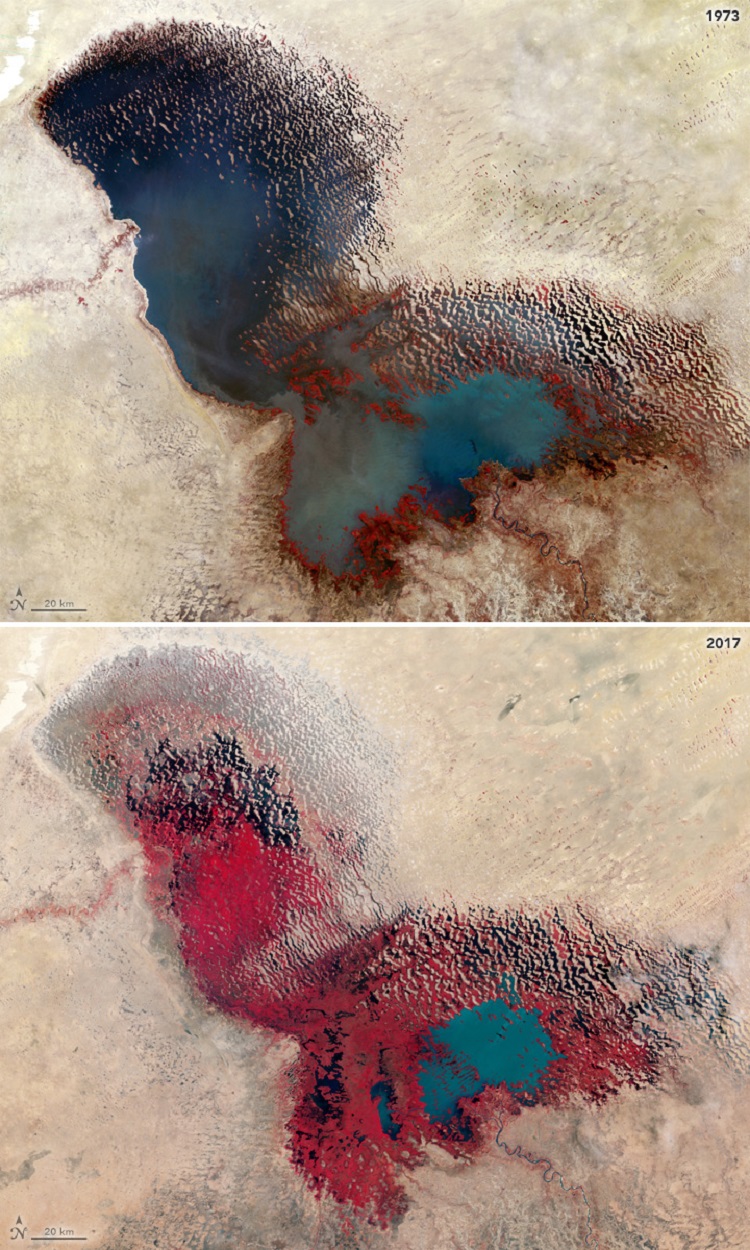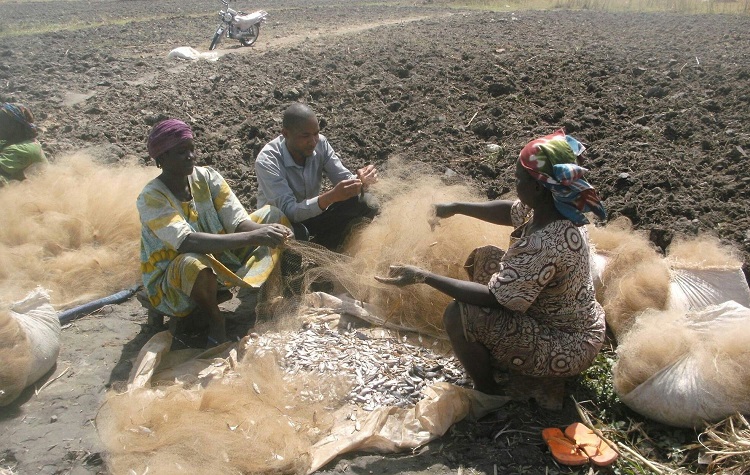Uche Okpara recently joined NRI staff as Fellow in Climate Change and State Fragility, but he was no stranger to NRI, having completed his MSc here in 2010. He had grown up watching his parents struggle to make a living from their Nigerian small-scale farming and food business which always seemed to be at the mercy of weather patterns, climatic changes and conflict. Uche took five minutes out of his day to Skype with NRI Communications Officer, Linden Kemkaran, about his ambition to find workable solutions for his parents and many others like them, and how he plans to use his NRI skills to make a difference in Africa.
 When I was growing up in Nigeria, I saw how everyday lives and livelihoods were destroyed by conflicts and environmental degradation. I noticed how flood-induced soil erosion undermined rural farming enterprises and how this led to people struggling to maintain a regular income and to communities clashing over land and water resources.
When I was growing up in Nigeria, I saw how everyday lives and livelihoods were destroyed by conflicts and environmental degradation. I noticed how flood-induced soil erosion undermined rural farming enterprises and how this led to people struggling to maintain a regular income and to communities clashing over land and water resources.
I decided as a youngster, that I wanted to understand all the different dynamics that surround agriculture, environment, livelihoods and conflict and to try to find workable solutions. That was how my interest started; witnessing first-hand how the impact of nature and violence directly affected my family’s livelihood and income.
Before coming to NRI, I had already completed a degree in Agricultural Economics and was lecturing at the University of Nigeria, whilst studying there for a Master’s in Natural Resources and Environmental Economics.
I’d always had a yearning to travel abroad to study, specifically in the UK. I realised early on that developing a wider knowledge would be an asset, so I began my research into which British universities offered the most useful and relevant courses around natural resources and sustainable development in the African context.
I discovered NRI and was intrigued that most of the work that NRI did was focused on Africa, and that most of the lecturers had huge work experience and collaboration with African researchers and scientists. That really appealed to me.
The programme on Natural Resources and Sustainable Environmental Management that NRI offered seemed perfect. I applied and was lucky enough to win a scholarship. I had to make a rapid decision to drop the MSc that I was doing in Nigeria to take up the place at NRI in 2009.
It was my first time travelling overseas, my first time out of Nigeria! The Medway campus was a completely new environment for me. I’d never been involved in an international setting with people from different cultures and different ethnic backgrounds – it was all very new and exciting.
I would describe the first few weeks as something of a culture shock – but I was lucky to have been hugely assisted by Dr Peter Burt, in fact he coordinated my travel plan; he sorted out the booking of my flights and even organised my transport from Heathrow. Even better, he made a point of greeting me personally when I arrived at Medway and helped me get set up.
NRI is a very caring and nurturing environment and there was a lot of other support to get me started and settled in. Because it was my very first time studying in an international environment, I had a few difficulties to begin with. I had issues understanding British accents – in fact I bought a voice recorder which I used in lectures so I could listen back to what was said and help me get accustomed to the different accents and dialects.
Also, I struggled to understand the issues around plagiarism; the rules were all new to me. Initially I got penalised for unwittingly plagiarising things in my essays, so I had to learn how to write originally and creatively. It was a big and important learning curve but I was fully supported all the way.
Professor Gabriella Gibson was particularly helpful. She took us on a field trip to London Zoo, to merge our classroom experience with real examples which helped us understand the different elements of the Programme. We also visited Cambridge and got to know how different UK universities operated. I would describe it as a comprehensive learning experience.
I graduated in 2010 and immediately began to apply for admissions and scholarships to study for my PhD and thanks to help from NRI, was offered a place at the University of Leeds but I still had to secure funding. In the meantime, I returned to Nigeria to resume lecturing and then shortly afterwards in 2012 I secured funding and returned to the UK to take up the PhD place at Leeds. In the same year, I also secured another scholarship for a PhD in South Africa which I declined due to my decision to go to Leeds.
returned to Nigeria to resume lecturing and then shortly afterwards in 2012 I secured funding and returned to the UK to take up the PhD place at Leeds. In the same year, I also secured another scholarship for a PhD in South Africa which I declined due to my decision to go to Leeds.
My PhD was in Environmental Sustainability and I followed it up with a postdoctoral fellowship in Environment and Development. I had the amazing opportunity to travel to many different countries to present my work via funding support from several international funding bodies; I also got six papers published from my PhD work and won some academic prizes. This opened the door for me to participate in finding and advancing solutions to climate-conflict and development issues. For example, I was actively involved in advancing understanding of the challenges in the Lake Chad region and developing solutions that development actors can work on.
After my PhD and postdoctoral work at Leeds, I returned to Nigeria to continue my research and lecturing. I also became involved in mentoring postgraduate students and supporting the design of research proposals and delivery of funded projects. I then discovered that NRI was looking for a Fellow in Climate Change and State Fragility – an opening that was just right for me as that was the area of my PhD research.
I felt very excited and got my application in to NRI straight away. Luckily, I was successful at the interview and was offered the job and I feel so happy to be back at NRI. Each time I walk through the campus, I recall the wonderful experiences I had there as a student. It feels like I’ve come home.
NRI does a lot of excellent work on food security especially through its work on cassava innovation in Africa. The positive impact on rural farmers has been immense. NRI provides an excellent platform for researchers like me to concentrate on the challenges facing Africa. I hope to use that platform to reach communities in Africa and to develop interdisciplinary collaborative projects that will address specific conflict, climate, food security and fragility problems on the ground. I’d like to remain working in the UK but to continue to focus on Africa to really make a difference.
To find out more about:

